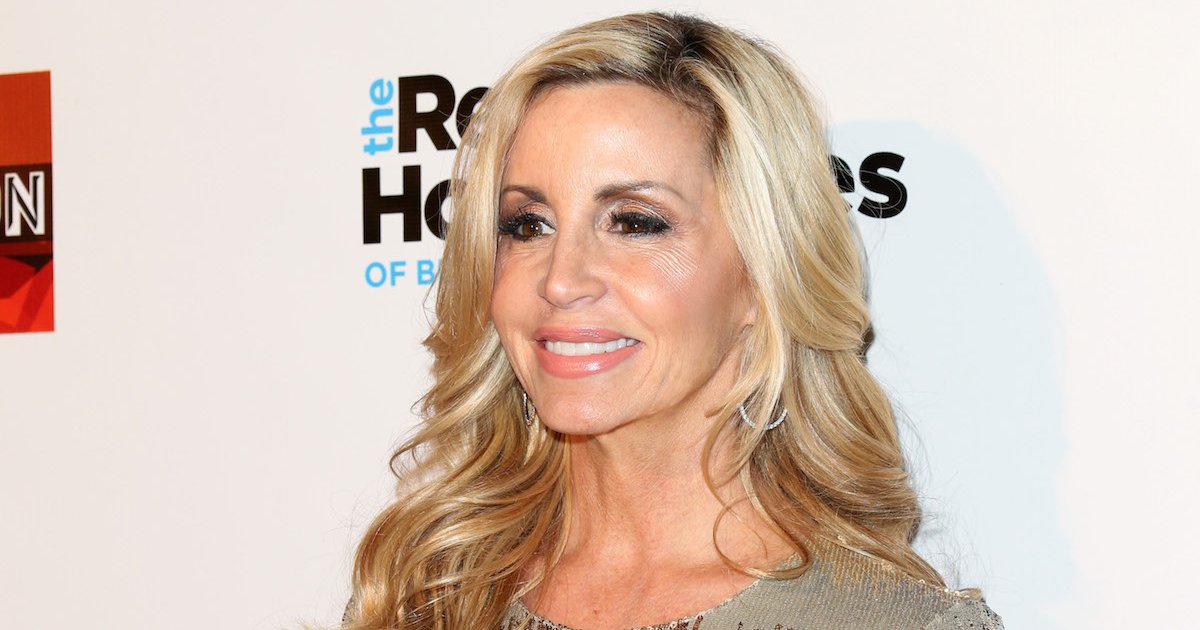Camille Grammer's Touching Visit
- Real Housewives of Beverly Hills OG Camille Meyer, formerly Camille Grammer, recently visited her mother who is battling bladder cancer, and penned a touching message about the special moment.
- Meyer herself has battled endometrial cancer and skin cancer.
- Bladder cancer is caused when cells that make up the urinary bladder start growing out of control, which can develop into tumors and over time, if not caught, spread to other parts of the body. Surgery is the most common treatment option.
In August, Meyer shared a photo of her and her mother, Maureen Donatacci, who has been fighting numerous cancers for years of her life. Donatacci is currently battling bladder cancer, but has faced battled other types of cancers previously. When Donatacci was 46-years old, she was diagnosed with stage 2 ovarian cancer and underwent a full hysterectomy as well as chemotherapy and radiation. Then, she faced colon cancer and later bladder cancer, for which she is currently receiving treatment.
Read MoreView this post on Instagram
Meyer has stayed right by her mom's side throughout her numerous battles with cancer. However, in 2013, Meyer embarked on her own cancer journey. She was diagnosed with stage II endometrial cancer, a type of uterine cancer. She underwent a "radical hysterectomy," which is a surgery that removes her uterus and reproductive organs. Following the surgery, she went through chemotherapy and radiation, and was declared in remission.
Even though she successfully overcame endometrial cancer, Meyer faced a second diagnosis in 2017 that one for a type of skin cancer called squamous cell carcinoma. The disease was caught early, and after going through surgery to remove the cancerous tumors, she was declared in remission.
Bladder Cancer: A Breakdown
Bladder cancer is caused when cells that make up the urinary bladder start growing out of control, which can develop into tumors and over time, if not caught, spread to other parts of the body. The disease is the fourth most common cancer among men, and is especially present in people over the age of 55. Plus, smoking is one of leading causes of bladder cancer, with smokers being three times more likely to be diagnosed than non-smokers.
Surgery is typically the most common form of treatment for bladder cancer, but in cases where the disease is likely to return patients may consider immunotherapy as an option. According to Dr. Arjun Balar, director of the genitourinary medical oncology program at NYU's Perlmutter Cancer Center, 60-70% of people diagnosed with advanced bladder cancer may not be able to have the cancer fully removed from surgery, and are not eligible for chemotherapy options. There's where a new development, called checkpoint inhibitors, comes in.
Related: May is Bladder Cancer Awareness Month; Jack Lemmon & Others Have Battled This Disease
Additionally, so far, five immunotherapy drugs have been approved by the Food and Drug Administration (FDA) for advanced bladder cancer, which includes avelumab, pembrolizumab, atezolizumab, nivolumab, and durvalubam.
Dr. Arjun Balar breaks down the side-effects to immunotherapy
Appreciate Every Moment
Facing cancer is understandably an extremely difficult situation, but survivors have said it’s also brought a whole new perspective on life and made them appreciate the little things even more. When Cynthia Besteman found out she had breast cancer, she was at a complete loss since she had no family history of the disease and led a really healthy lifestyle. However, after the news, she took a moment and realized life had gained a whole new perspective. "Suddenly, it's like the buildings look different and the sky looked different and my body felt different," Besteman previously told SurvivorNet. "It was like this alternate universe."
Besteman initially felt betrayed by her body, and very disconnected from herself. But that all changed after going through treatment and being declared "cancer-free." Since, she's appreciated her family even more since they stood by her side throughout her journey.
"I knew I had a great family, but I didn't know how great until I got diagnosed," Besteman says. "You go a little crazy and you get angry and you go through all these different stages, and they support you through all of them. Sometimes, through the worst possible, darkest time of your life, a beautiful gift can be revealed. Look for that, be open for that."
Breast cancer survivor Cynthia Besteman appreciates life even more after her diagnosis
Learn more about SurvivorNet's rigorous medical review process.


